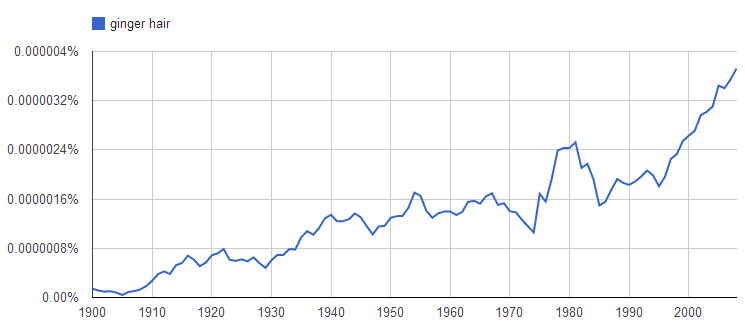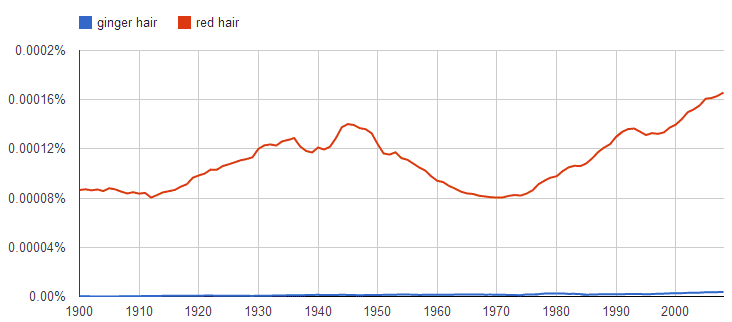A recent article published by the BBC suggests that “Britishisms” are now appearing more frequently in American English. The article is based partly on the lighthearted blog of Ben Yagoda, professor of English at the University of Delaware, dedicated to “UK expressions that have got popular in the US”. The blog cites examples such as clever as opposed to the preferred American smart, and the return of the u that Noah Webster removed from words like glamour/glamor and armour/armor.
The BBC’s article uses google’s excellent N-grams to track usage in published literature and offers an interesting addition to the usual articles about Americanisms “invading” British English (many supposed Americanisms are not really American in origin). These articles generally attract lots and lots of comments, particularly from Brits for whom the “American” usage grates, for no reason in particular.
One example used in the article is informative: where Americans normally say red hair, the British term ginger is becoming an increasingly popular alternative. Kory Stamper of Merriam-Webster attributes this “huge up-tick”, which picked up pace in 1998, to Harry Potter books and Ron Weasley’s distinctive hair. Many British words in the Harry Potter books were Americanized before the books were published in the USA, but ginger “slipped through”. This is the N-gram graph used in the BBC article to illustrate the incredible increase of ginger usage in US English:

You have to get further down into the article before the caveats start, and they are important!
“We are not seeing a radical change to the American language, says Jesse Sheidlower, American editor at large of the Oxford English Dictionary – rather a “very small, but noticeable” trend.”
Here is an N-gram comparing the use of ginger hair to red hair:

(Ginger hair is that blue line at the bottom)
Have a look at the article. It’s fun. But if you are deciding where to learn English, our advice would be: don’t worry about British English or American English, focus on the destination that suits you.



What do you think?